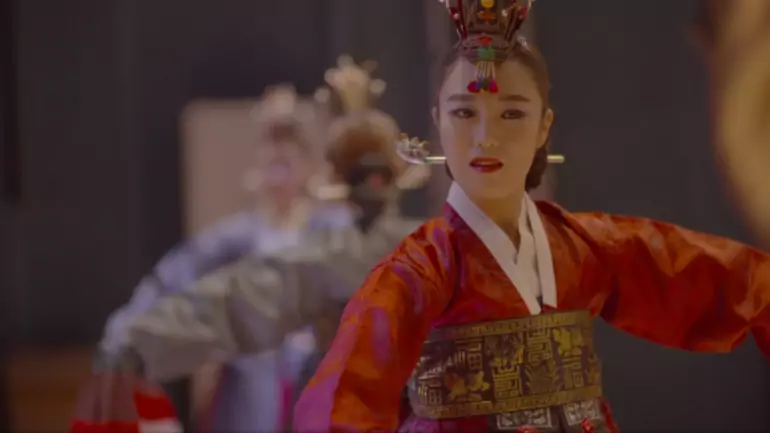Love in South Korea: Exploring Relationships and Dating Culture

In this article, we delve into the intriguing world of relationships and dating culture in South Korea. From traditional values to modern dating trends, discover how love is perceived and expressed in the Korean context.
Korean Flirting: The Art of Romantic Pursuit
You know how it's kind of a thing to act all cool and mysterious after meeting someone you're into? Like, waiting a few days to call or text, or not being too eager so you don't scare them off? We've all seen those scenes in American rom-coms where the friends snatch the phone away so the protagonist won't call their date from the day before and they wait for the other person to make the move. Well, in Korea, it's not like that at all.
Normally, if someone's interested in you, they'll text you pretty much as soon as you say goodbye. It totally makes sense, right? Why wait if you already know you like them? Questions like "Did you get home okay?" on the same day, or "Have you eaten yet?", "What did you do today?" the next day, are pretty common conversation starters.
And here's the flip side: if they don't text you right after hanging out or in the following days, they might not be as interested as they seemed.
But here's where it gets interesting: there's this thing called "milddang" or "밀당" in Korean. It's like this push and pull game, kind of like those signs on shop doors that say "push" and "pull". It can be pretty exhausting, to be honest. While in Spain, we pretend to be all indifferent, Korean youngsters are out there sending mixed signals left, right, and center.
We are in a romantic relationship♪♫
Regardless of age, in South Korea, there's a very romantic or very uncomfortable courtship phase, depending on the person: the confession. Someone has to say, "I like you, want to go out?" This, which seems very high school, is very normal in South Korea until well into your 20s and beyond. Sure, there are probably couples who don't start like this, but it's quite common.
Assuming things go well and you're officially a couple, many things change in your life. If there's one thing that stresses me out about dating Koreans, it's how abrupt relationship changes can be. There's a before and after deciding, through verbal agreement, that you're together, and that goes against people who prefer to get used to the person before deciding they're your everything.
Over time, the way people relate in Korea has relaxed, and the concept of "some" has emerged - one of the many Konglish expressions filling the language - which means having a fling or a not-so-serious relationship. However, the norm in Korea is to have a conventional boyfriend-girlfriend relationship. It's not uncommon to see lovebirds everywhere you go. South Korea is a country oriented towards couple activities, towards consuming things in pairs. A large part of the offerings or consumer products are created with that target audience in mind (there are even cinemas with snug double seats!) A lot of money is spent on couple activities.
This can make people without partners feel displaced or out of place. We've talked before about how important it is in Korea what others think or do. That's why sometimes I get the feeling that both men and women are desperate to find someone special to do all the expected activities with. I, being quite nosy, have sometimes overheard other people's conversations on a date where it seemed like they hardly knew each other and they were already celebrating their 100 days together (a special date among young couples!).
When I mentioned earlier that life changes a bit when you have a partner, it's because there are new things you have to do and things you have to stop doing. Going to the club or going out at night with your friends becomes pretty much forbidden unless you discuss it with your partner and they're understanding or modern. This goes for both girls and guys. We already discussed last time why Korean partners don't like it when you go out at night with your friends. In my case, having to even have that conversation to explain that it's okay to go out at night is quite tiresome.
Interactions with the opposite sex also decrease quite a bit. Both women and men are quite jealous, although how they express it depends on the person. I've had Korean friends tell me they couldn't see me anymore because they got a girlfriend and she didn't allow it. They allowed it so they could do the same with her male friends.
The date, a standalone occasion
The positive part of all this is all the romantic little things that come with the relationship. Korean couples are very attentive to details. If you like cheesy details (and you're able to keep up and include them in your routine), it can be very enjoyable. Dates marked on the calendar, relationship anniversaries, birthdays, and so on, lead to some couples spending the whole year celebrating their relationship in one way or another. But you can also find someone more laid-back who doesn't make a big deal out of it.
For me, the word "date" didn't have any special meaning. I knew that, besides meaning "date," in English-speaking countries, it's what they call meeting someone with romantic intentions. In movies, it's usually translated as "date," but I've never used the word "date" with that meaning in my life. And even less so when that person and I were already a couple. It seemed like too grand a word. I think part of this has to do with the European way of not wanting to be too self-aware...
In Korea, any time you meet up with your partner it's a date. It's about planning something special or different that includes dinner, a romantic walk, or something special. It's very normal for guys to organize the dates but for the girls to choose the restaurant or the café to go to after dinner (they don't usually offer desserts in restaurants!)
In the next episodes, we'll talk about what sex education is like in Korea and how relationships work in that aspect, how a relationship ends in South Korea, and what multicultural relationships are like. See you around!
 Quiz: Would You Be a Loser in South Korea?
Quiz: Would You Be a Loser in South Korea? Love in South Korea: Part 2 - Getting to Know Each Other
Love in South Korea: Part 2 - Getting to Know Each Other K-POP: The Iconic Music of the Korean Culture
K-POP: The Iconic Music of the Korean Culture Discovering South Korea: 8 Fascinating Tips for Your Journey
Discovering South Korea: 8 Fascinating Tips for Your Journey Unveiling the History of Gisaeng: Who Were They?
Unveiling the History of Gisaeng: Who Were They? Discover the story of Kim Il-Sung, the founding figure of North Korea
Discover the story of Kim Il-Sung, the founding figure of North Korea The Intriguing Drama of 'Love Affairs in the Afternoon'
The Intriguing Drama of 'Love Affairs in the Afternoon'

Leave a Reply